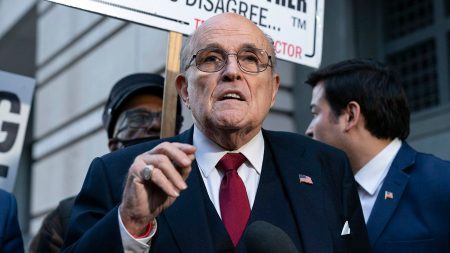A federal court in Louisiana has deemed the state’s congressional map as an unconstitutional racial gerrymander, prompting state lawmakers to redraw the map by the beginning of June. If lawmakers fail to do so, the court will order the use of an interim remedial congressional districting map on June 4, 2024, potentially appointing a redistricting expert to assist in the process. The dispute over the congressional map could impact the control of the US House next year, with the court setting up a schedule for proposals for a new map to be considered if necessary.
Following the 2020 census, the Louisiana legislature drew a congressional map with only one majority-Black district in a state where one-third of the population is African American. Another federal court last year ruled this map as a likely violation of the Voting Rights Act. The legislature then created a new map this year to include a second majority-Black district out of six total districts. However, this new map was challenged by voters, including prominent White Republicans, and was struck down by a three-judge panel last week, leading to further legal complications.
Louisiana Secretary of State Nancy Landry has highlighted the importance of having a new map by May 15 to administer this year’s elections. However, the court has noted that Louisiana could still be prepared for the November election as long as a map is in place by the end of May. It is expected that some of the litigants involved in the case will seek intervention from the Supreme Court this week, pushing for the plan adopted by lawmakers earlier this year to be used for this year’s elections. The timeline for resolving the redistricting issue remains critical to ensure fair and Constitutional congressional representation in Louisiana.
The federal court’s order for the Louisiana Legislature to redraw the congressional map by June is a significant step in addressing the issue of racial gerrymandering and ensuring fair representation for all residents. The court’s willingness to intervene and potentially appoint a redistricting expert underscores the seriousness of the situation and the need to rectify the violations of the Voting Rights Act. The potential impact on the control of the US House further emphasizes the importance of resolving this issue promptly.
The dispute over Louisiana’s congressional map reflects broader challenges faced in redistricting processes across the country, where gerrymandering and racial bias can undermine the democratic principles of fair representation. By striking down the map and setting a deadline for lawmakers to act, the court is sending a strong message about upholding the integrity of electoral systems and protecting the rights of all voters. The involvement of various stakeholders, including voters and state officials, highlights the complexities involved in redistricting and the necessity for transparent and equitable solutions.
Overall, the ongoing legal battle over Louisiana’s congressional map highlights the complexities and controversies that often surround redistricting processes. The court’s order for a new map, the potential for Supreme Court intervention, and the impact on upcoming elections all underscore the significance of fair and inclusive representation in democratic systems. As stakeholders continue to navigate these challenges, the need for transparent, nonpartisan, and constitutionally compliant redistricting processes remains paramount to uphold the integrity of elections and ensure equitable representation for all citizens.















